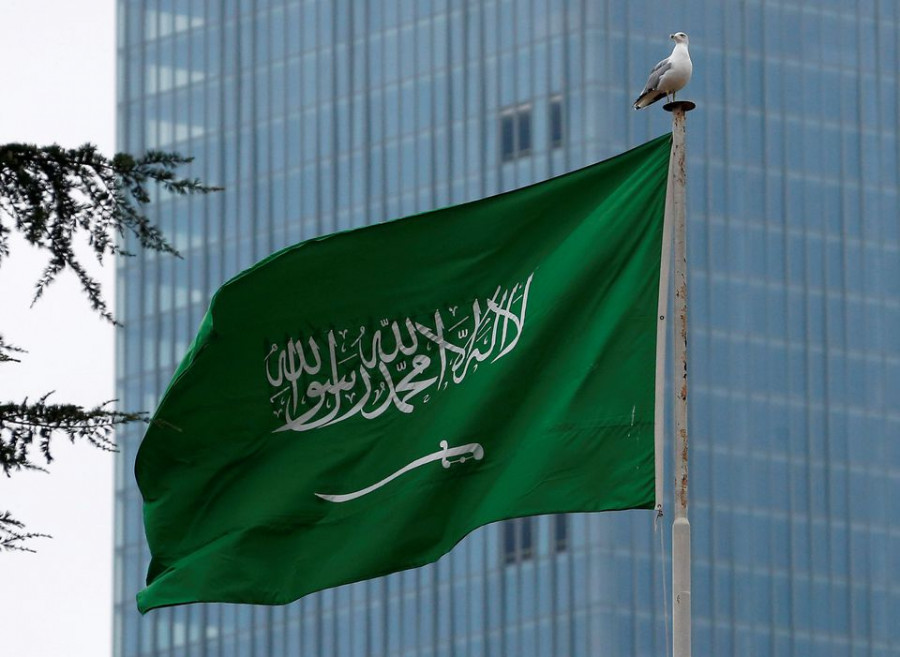
Despite Nepal’s repeated request for clemency, Saudi authorities have beheaded a Nepali national, Bibek Dahal of Udayapur district, on the charge of murder and bestiality. He had been languishing in a local jail since 2014 and had been brought to Jubail jail for beheading recently.
Navaraj Subedi, Nepali ambassador to Saudi Arabia, confirmed that Dahal was decapitated on October 23 while adding that the Nepali embassy was not informed by the Saudi authorities prior to the execution.
In Saudi Arabia, execution is brutal—the person is decapitated with a sword. Sometimes, the body is crucified after the beheading, but in Dahal’s case, the Saudi authorities buried his body, according to multiple sources.
After the Nepali Embassy in Riyadh communicated the matter to Foreign Minister Narayan Khadka and Foreign Secretary Bharat Raj Paudyal, the ministry decided to summon the Saudi ambassador to express the government’s displeasure.
Foreign Secretary Paudyal on Tuesday summoned Saudi envoy Saad bin Nasser Abu Himed to the ministry and expressed dissatisfaction on behalf of the government over the Saudi government’s ignoring of Nepal’s requests to halt the execution.
“When a Nepali national is executed in a foreign country under whatever pretext, it is our duty to raise the issue and express our displeasure over the incident,” a foreign ministry official said.
President Bidya Devi Bhandari had earlier requested the Saudi king to extend royal clemency to Dahal, while Foreign Minister Narayan Khadka had made a similar request to Saudi Arabian Foreign Minister Prince Faisal bin Fahran Al Saud during his visit to Nepal in March, said Subedi.
“Despite repeated requests from our side, the Saudi authorities beheaded Dahal. This is sad. They did not inform us prior to the execution but only two days after the execution,” Subedi told the Post over the phone from Riyadh. “Then we inquired about the incident. We communicated about it to the foreign minister and foreign secretary back in Kathmandu”.
The Saudi authorities have assured the Nepali Embassy in Riyadh that they will provide the relevant documents related to Dahal’s prosecution.
Some of Dahal’s relatives are working in Saudi Arabia, so they know of his execution, said Subedi. “Since his mother is very old, the relatives have been advised to inform the mother about the death in due course.
“We made utmost effort to stop the execution, but failed since the crimes he was accused of were heinous as per the Saudi law,” an official at the Foreign Ministry said.
Dahal was convicted of murdering his compatriot Rajendra Bist with a sharp weapon. Also, Dahal had rendered made blind one Sudanese national during a brawl and injured another Nepali national and made him permanently disabled in 2014, according to Nepali officials.
Dahal was also found indulging repeatedly in bestiality. After he was convicted of all the crimes by Saudi courts including the Supreme Court, he was executed.
Earlier in 2014, Saudi authorities had beheaded a Nepali housemaid convicted of murdering a two-year-old boy by slitting his throat.
Several international human rights organizations including the UN High Commission for Human Rights and Amnesty International have denounced the "sharp increase in the use of capital punishment" in Saudi Arabia.
“Death penalty is the ultimate cruel, inhuman and degrading punishment, and a violation of the right to life,” Amnesty said in a statement in March, adding, “Amnesty International calls on the Saudi Arabian authorities to put an immediate halt to executions, establish an official moratorium on all executions and initiate legislation that would totally abolish the death penalty for all crimes.”
Former Nepali ambassador to Saudi Arabia, Professor Mahendra Prasad Singh Rajput, said the Nepal government has repeatedly registered its concerns with the Saudi authorities over executions of Nepali nationals in Saudi Arabia.
According to Rajput, the family of Bist had pardoned Dahal but the Saudi authorities did not since he was also convicted of bestiality.
“The crimes Dahal was accused of were serious under Saudi law, so our efforts to save him were futile,” added Rajput, who served as Nepali ambassador to Saudi Arabia from 2017 to June 2021.
Currently, altogether 286 Nepali nationals are languishing in various Saudi jails. According to the Nepali Embassy in Riyadh, over 80 percent of those in jail have been accused of either producing or consuming alcohol.












